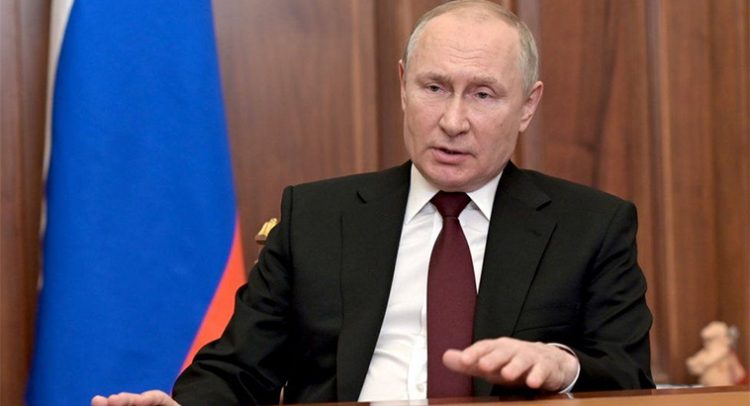Russian history is full of “colourful names”; that is, the names of people whom you can’t forget, once you have read about them.
One such name is that of Grigori Rasputin, a mystical, alleged ‘healer’ who gained influence over Tsar Nicholas of Russia and his family, at the beginning of the 20th century.
Russian society was very unstable at the time (the October [Communist] Revolution was only a decade away) and the opponents of the tsarist monarchy tried to discredit the institution by spreading stories that Rasputin had gained his influence over the Tsar by introducing him to occult practices, including self-flagellation and sexual orgies.
Once the process of demonisation against him had begun, Rasputin became the person to whom it was attributed, most of the Tsar’s own unpopular policies. The evidence was thin on the ground, but as is well known, everyone loves a scapegoat. And so Rasputin’s reputation as the “evil counsellor”, has outlived him.
Does President Vladimir Putin of Russia ever consider that his enemies might add “Ras” to his name when they want to discredit him? Certainly, his background is filled with enough secrets to provide cannon fodder to his detractors. First of all, in his early career, he was – officially – authorised to be “invisible”: he was an officer of the Soviet secret service (KGB) who achieved the rank of lieutenant-colonel.!
That early career proved, in later life, to be the means by which Putin was to rise to the topmost position in Russia – President. As the Soviet Union began to break up and power moved from the hands of the Communist Party to new contenders for power in Russia, an ex-KGB officer who “knew where the bodies were buried” (that is, he knew the secrets of most of the influential people in the country) became a good ally to have. He thus moved up the political ladder, and eventually became one of the key officials in the court of President Boris Yeltsin.
Yeltsin made it known that he wanted Putin to become his successor, and so when Yeltsin resigned, largely due to ill-health, on December 31, 1999, Putin became Acting President! Three months later – on March 26, 2000, to be exact – Putin won in the first round of a presidential election, with 53% of the vote. Confirmation of the vote followed.
Putin has never left the top office of Russia ever since. He has coldly changed the Constitution whenever he was due to reach the end of his “term”. But whilst consolidating his power over the past quarter of a century, his lifestyle has caused numerous stories to be spread about him, many of which are as imaginative (not to say prurient!) as those told about Grigori Rasputin.
Nevertheless, it is not so much those stories that will be remembered by history as his invasion of Ukraine in February 2022. For what that invasion has done is to take the world right up to the front door of the Third World War. Just as the world reached an existential crisis 60 years ago – in the Cuban missile crisis of October 1962.
How come? Between 1917 and 1920, several entities that aspired to be independent Ukrainian states came into existence. Ultimately, most Ukrainian lands were incorporated into the Soviet Union and the remainder, in western Ukraine, was divided among Poland, Czechoslovakia, and Romania.
Later, a “Ukrainian War of Independence” (1917 to 1921) produced a “Ukrainian Soviet Socialist Republic”. Ukraine retained that status, until the Soviet Union was dissolved on December 8, 1991. At that time, Ukraine officially declared itself an independent country (August 24, 1991.)
The Soviet Union formally ceased to exist on December 26, 1991, when the presidents of Ukraine, Belarus and Russia (the founding members of the USSR) formally dissolved the Union. By invading Ukraine on February 24, 2022, President Putin has reversed all the agreements painfully negotiated to bring Ukraine the sovereignty its people desired.
Why did Putin invade Ukraine and will he get away with it? It appears that he fears that Ukraine’s current leaders are so close to the Western powers that they will join the North Atlantic Treaty Organisation (NATO) if given a chance. But (Putin believes) NATO was conceived to deny Russia its place as a major power in Europe. If Ukraine were to allow NATO to station NATO troops on Ukrainian soil, the “humiliation” that Russia suffered with the dissolution of the USSR in 1991, would be resurrected.
Putin has, with no doubt, calculated that the Western Powers will NOT use armed force to save Ukraine from being “recolonised” by Russia. What the Western powers would do would be to impose economic sanctions on Russia. However, Russia now has enough foreign exchange reserves not to be seriously affected by Western economic sanctions. Indeed, the West would probably be hurt more with the economic sanctions than Russia, given the new gas pipeline (Russia’s Nord Stream 2) from which Germany is hoping to obtain most of its future gas supplies.
If Putin wins the war of nerves he has initiated, his prestige will rise throughout the world as a valiant leader who was not afraid to confront the Western Powers when they overstepped the mark. They had overstepped the mark when they “moved” Europe’s critical security “no-go” area closer to Russia by turning Ukraine into a NATO “ally” in all but name.
www.cameronduodu.com
BY CAMERON DUODU


